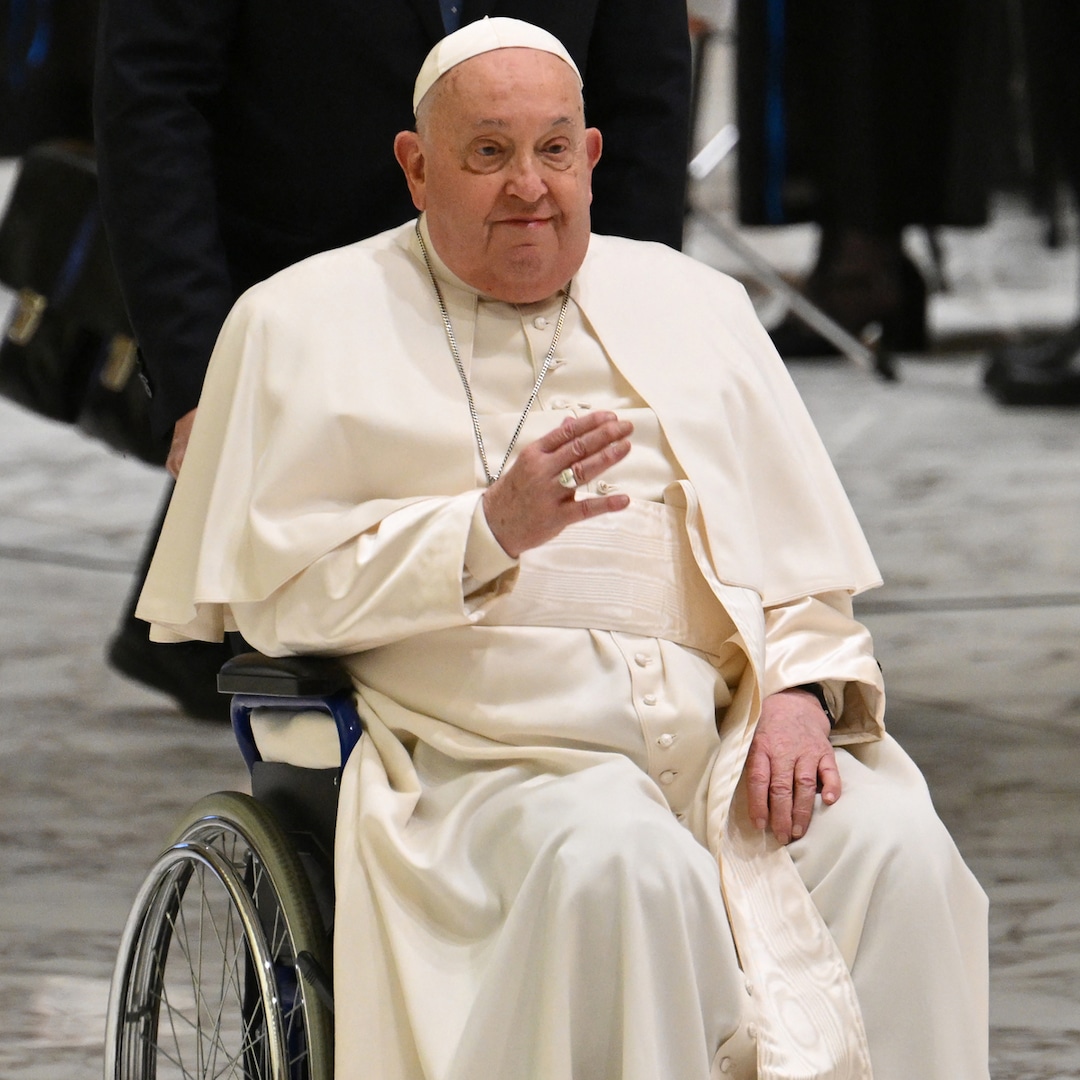Pope Francis, who was named the head of the Catholic Church in 2013, died following a series of health complications. He was 88.
The Catholic Church has lost its leader.
Pope Francis (born Jorge Mario Bergoglio) died on April 21 at age 88, the Vatican confirmed.
“At 7:35 this morning, the Bishop of Rome, Francis, returned to the house of the Father,” Cardinal Kevin Farrell said in a statement, obtained by NBC News. “He taught us to live the values of the Gospel with faithfulness, courage, and universal love, especially in favor of the poorest and the marginalized.”
His passing comes two months after his hospitalization for respiratory problems. The pontiff was initially admitted to the Agostino Gemelli Polyclinic in Rome on Feb. 14 to treat for lingering symptoms of bronchitis, but was later diagnosed with pneumonia in both lungs.
“The laboratory examinations, thoracic x-ray and clinical conditions of the Holy Father continue to present a complex picture,” a Feb. 18 statement from the Holy See Press Office read, explaining CT scans showed a “polymicrobial infection of the respiratory tract” and an “onset of bilateral pneumonia that required further drug therapy.”
On Feb. 22, the Vatican said additional testing showed “thrombocytopenia, associated with anemia, which required the administration of blood transfusions” amid Francis’ “critical condition.”
However, the Holy Father remained in good spirits. “I have recently received many messages of affection, and I have been particularly struck by the letters and drawings from children,” he said in a Feb. 23 statement. “Thank you for your closeness, and for the consoling prayers I have received from all over the world!”
This was not Francis’ first brush with pneumonia, having had part of his lung removed in the 1950s when he was diagnosed with a severe case of the respiratory infection while growing up in Buenos Aires.
A decade after the harrowing experience, Francis was ordained as a priest in 1969. He became the archbishop of the Argentine capital in 1998, before he was made into a cardinal by Pope John Paul II in 2001.
Francis was named the head of the Catholic Church in 2013, when Pope Benedict XVI resigned from his post due to health reasons. (Benedict—the first pope to retire since 1415—died in 2022 at age 95.)
Throughout his tenure as pope, Francis accomplished many firsts. Embracing the digital age, he was the first-ever pope to have an Instagram, as well as the first pope to pen an op-ed for The New York Times.
He was also known to have a more accommodating stance about the LGBTQ+ community than his predecessors. Most famously, he told reporters in 2013, “If a person is gay and seeks God and has good will, who am I to judge?”
While he still affirmed to the traditional Catholic belief that marriage is between a man and a woman, he did publicly voice support for same-sex couples to have legal protections.
“What we have to create is a civil union law,” Francis said in an interview from the 2020 documentary Francesco. “That way, they are legally covered.”
In his final years, Francis faced numerous health complications. He underwent an operation in 2021 to have part of his colon removed due to diverticulitis, an inflammation in digestive tract.
The following year, Francis began experiencing issues with his knee, prompting him to seek surgery and the use of a wheelchair.
In 2023, the religious figurehead was hospitalized for a respiratory infection and underwent a procedure to remove intestinal scar tissue as well as repair a hernia.
Francis injured his right forearm in an early 2025 fall. Though he did not fracture any bones, his arm was placed in a sling as a “precautionary measure,” per the Vatican.
But throughout his medical ordeals, Francis remained steadfast in continuing his papal duties until his death. As he put it in 2023, it should not “become a fashion, a normal thing” for a pope step down.
“I believe that the papal ministry should be for life,” he said in a meeting minutes published by Father Antonio Spadaro in Spanish newspaper La Stampa, per Reuters. “I don’t see a reason why it should not be this way.” Emphasizing “historic tradition,” Francis said of rumors of his retirement at the time, “If instead we listen to gossip, then we would have to change popes every six months.”
Per tradition, a conclave will be held to determine who will succeed Francis following his death. If cardinals cannot come to a two-third vote on the new pope, black smoke will be released from the Sistine Chapel chimney to indicate that a decision has not been reached.
Once a candidate has received the necessary votes and determined his papal name, smoke from the Sistine Chapel chimney will turn white.
Source: www.eonline.com
